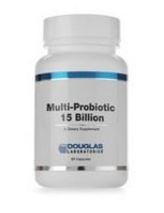Vitamin D3, Probiotics are Powerful, Natural Acne Remedies
Acne can result from such factors as hormonal disharmony, bacterial overgrowth, improper eating habits, chronic constipation, heredity and excess oil in the body. Although often overlooked, a direct link exists between Vitamin D and the skin.
Who would have ever thought that Acne was related to an imbalance of flora in the gut or a low Vitamin D level?
If you don’t know me by now, I try to find the cause of symptoms and disease rather than prescribing synthetic medications to cover up symptoms, especially complex acne medications like antibiotics, steroids, and accutane.
Accutane has been linked to Chron’s Disease. Not only does this drug dry up the face, it dries up the whole body. Many times once antibiotics are stopped, acne comes back raging. Sometimes, we just need to take a step back and look at natural remedies that worked in the past.

Let’s review some simple facts regarding Acne:
Why are more and more adolescents suffering from severe acne? Is it something we’re eating, something we’re taking?
Over the years, our children have received more and more antibiotics for minor ailments. I myself am guilty of demanding antibiotics for my four children when they were younger. My youngest son lived on antibiotics prior to receiving ear tubes. Interestingly, he is the one who has suffered the most with acne.
Many adolescents are treated with antibiotics such as Doxycycline or Minocycline for their acne. The trouble with antibiotics is that while they will indeed kill off the bacteria that may be causing infection, they are non-discriminatory and so will attack the friendly flora in the digestive tract that actually work to keep us healthy. My patients act surprised when I tell them that many elements of the immune system are based the gut.
In a healthy gut, the good bifidobacteria that make up about a third of the gut flora naturally produce antimicrobial agents, which kill off or inhibit the more harmful micro-organisms. When this balance is disrupted and the harmful bacteria are allowed to thrive, they can bind to the gut wall where the damage they cause includes intestinal permeability problems. We fail to absorb the good nutrients, vitamins & minerals and allow the wrong toxins through our intestines. This can lead to nutritional deficiencies, allergies, acne, and auto-immune disease.
The over-prescribing of antibiotics is one of the most common causes of this imbalance. However, supplementing the diet with a good quality probiotic will help re-balance the intestinal system and put those good bacteria back in control. Whenever you are prescribed antibiotics you need to take a probiotic with at least nine strains to counter the negative effects on your digestive system. It is important to note that not all probiotics are created equal. I often prescribe a pharmaceutical strength probiotic with Vitamin D3 for my acne patients.
Even if you suffer from a serious skin condition such as acne, you will likely notice a dramatic improvement to your skin if you take a probiotic supplement. This is because acne has been linked in some studies to intestinal health with researchers reporting increased blood levels of toxins absorbed from the gut in acne sufferers. These toxins come from those pathogens or bad bacteria that take over our intestinal tract. It has been shown that in about 50% of cases of acne, the natural balance of the gut bacteria has been disrupted and the bad bacteria are multiplying faster than the good bacteria. This is referred to as dysbiosis- the disturbance of the natural balance, which is an underlying cause of acne. Probiotics really can make a dramatic and positive difference on your skin.
Although a Vitamin D deficiency does not directly result in acne, obtaining sufficient Vitamin D can help resolve acne by making the skin and body healthier as a whole. Because the sun provides the most potent source of the nutrient, make sure you get enough exposure to the sun to improve your chances of having well-nourished skin. Of course, too much exposure to sun can also cause its own problems, so use your discretion. If your Vitamin D3 levels are low, synthetic forms of the nutrient used in supplements can help with the treatment of several common skin conditions, including acne.
Many clinics are now offering LED Light Therapy which also diminishes inflammation within the sebaceous gland to prevent propions-bacterium (P-acne) from reproducing.
Pamela Egan, NP, ABAAHP Diplomat, CDE is a board certified Adult & Family Nurse Practitioner, American Board of Anti-Aging Health Practitioner, Certified Diabetes Educator, Clinical Specialist in Mental Health can be reached at 985-892-3031.
